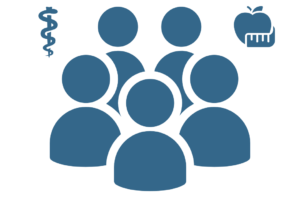Responsibilities of a Public Health Nurse Vary
Behind the scenes of a almost every public health facility is a public health nurse. They serve their community with integrity, respect, accountability, and humility and are the largest segment of specialized nurses.
A Public Health Nurse (PHN) protects the public health using the training from nursing, and ongoing education in social and public health sciences. Their goal is to promote health and prevent disabling diseases such as heart disease through prevention in public forums. Nurses who are not focused on Public Health treat individual patients typically at hospitals and private clinics.
A PHN serves in many different critical roles in the Healthcare workforce. They could work in a setting like health department, schools, community health centers, mobile RV’s, and criminal jail systems. They play a big role in serving the community needs especially in underserved areas where healthcare may be financially out of reach. Many PHN’s play a role in helping communities assist in substance abuse, helping the homeless, domestic violence survivors and immunizing those in need.
Education you will need: Bachelor of Science in Nursing (BSN) from an accredited school and some employers require a Masters degree. After receiving your degree, most states require a state certification or license to practice such as a Registered Nurse (RN). The Association of Public Health Nurses (APHN) is an association advocate for Public Nurses.
Median Annual Wage: $71,730
Job Environment
Public Health Nurses are trained Registered Nurses so they know the best practices of patient care and use that knowledge to work with communities and the public on health educations. Disease prevention in Healthcare is the ultimate goal and a PHN will travel to community centers, city halls, elderly centers and schools to present disease prevention and health education to the local public to provide information to help them live a longer life.
Other duties that a public health nurse may perform include the following:
- Monitor latest trends in health and disease and find risk factors that could affect specific communities.
- Setting health intervention priorities for local areas, so that the biggest number of people get the most benefits.
- Work with state and local governments so that under served communities get better access to healthcare.
- Deliver education campaigns, including prevention of disease, health screenings and benefits of immunizations.
- Reach out to the vulnerable or at risk in communities on available healthcare in their area and coach them on how to get access.
- Provide and administer community immunization programs especially in lower income areas
- Assist in planning to reduce the dangers of natural or man-made disasters and participate in the relief of these disasters.
Public Health Nursing Careers
Informatics Nurse
This profession is Nursing combined with information technology. If you have a passion for the healthcare of our communities and a knack for technology such as information systems, then an Informatics Nurse maybe the career path for you. Informatics nursing combines nursing skills and knowledge and health information to promote the public health but more importantly monitor data that can quickly detect trends in disease outbreaks and work with local governments on resolution.
Salary: Average salary for informatics nurses is $83,000.
Job outlook: The American Medical Informatics Association (AMIA) estimates that up to 70,000 nursing informatics specialists/analysts may be needed in the next five years.
Requirements: To get into nursing informatics, a Master of Science in Nursing, or a Master’s in Information or Computer Science is needed.
Health Policy Nurse
This a perfect role if you are passionate about health and public policy. A health policy nurse performs the tasks of advocacy, research, analysis, policy development, implementation, and evaluation.
Salary: This is a newer professional job for a person with Nursing background. While statistics do not exist yet on average salary, it is expected to earn a wage similar to an RN.
Growth Outlook: With the changes in public opinion on affordable health care provided by the government, this is forecasted to be a growth job.
Requirements: After earning your Masters of Science in Nursing (MSN), completion of a 10-week health policy residency program in state or local government office, advocacy organization, or community group will be required.
Public Health Nurse
This is the most common title when seeking employment in this profession. A Public Health nurse typically works for a state or local government and supports local clinics with family planning, immunization clinics, as well as elderly care and family care screenings for adults and children.
Salary: The median wage for Public Health Nurse is $71,730.
Job Outlook: Public Health Nurse jobs are expected to grow 19% over the next five years.
Requirements: a Bachelor of Science in Nursing (BSN) with an active state license as a Registered Nurse (RN).
Career Advancement
Many nurses get into the profession because they are passionate about helping their fellow citizens. But what about career advancement? Advances in pay and responsibility depends on your level of training and how you perform on the job among other factors. If you are a nurses assistant (LVN) then becoming a Registered Nurse (RN) is your next goal.
A RN with experience, good performance, and continuing education could be promoted into managerial positions. Many employers are requiring Masters degrees for these senior positions. Some nurses see niche needs in their community or local governments and may decide to go into business for themselves and perform in a consulting role.
There are no shortages of opportunities as a Public Health Nurse. If you are ready to get started, check out a school or program near you by clicking the blue find schools button.

